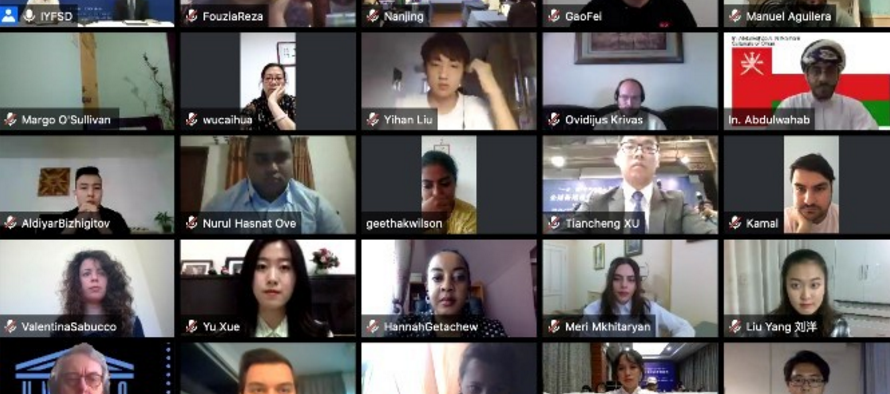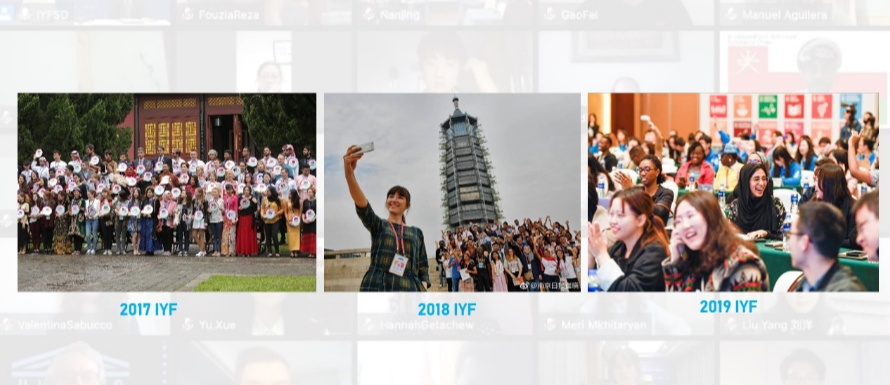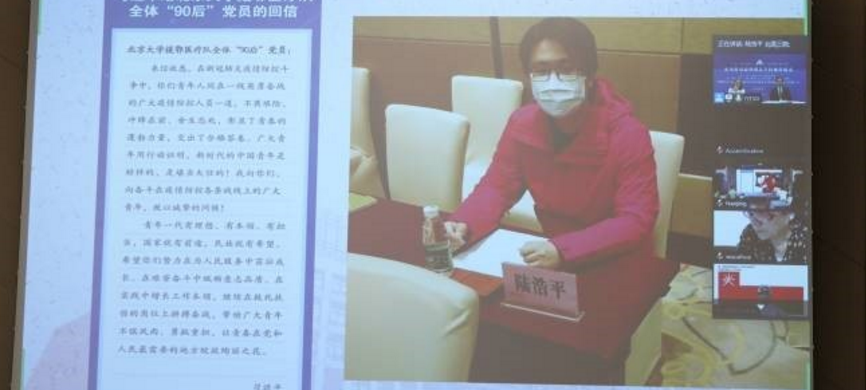UNESCO: IYF Special Dialogue on Youth Action and Commitment in the Context of the COVID-19 Pandemic (IYFSD)
date:2020-06-03 20:55author:小编source:UNESCOviews:

Background:
The International Youth Forum on Creativity and Heritage along the Silk Roads (IYF) is an annual gathering of young people from all over the world, organized by the UNESCO Beijing Cluster Office and the Chinese National Commission for UNESCO in collaboration with Chinese local governments. The first meeting was held in 2017 with an objective of giving young people a platform to voice their interests and concerns on creativity and heritage, and to mobilize their talents for sustainable development.
Overcoming the health, social, economic and cultural challenges resulting from the COVID-19 pandemic requires everyone’s contribution. Engagement of young people, in particular, is most important, as they are disproportionally affected by the pandemic and its long-term impacts on communities and societies. On May 20, a IYF Special Dialogue on Youth Action and Commitment in the Context of the COVID-19 Pandemic (IYFSD) virtually convened alumni of the three past International Youth Forum on Creativity and Heritage along the Silk Roads (IYF), so that they could share youth concerns, exchange youth responses, and inspire increased engagement of young people in combating COVID-19 and its negative socioeconomic consequences.
Over 120 IYF alumni from 68 countries gathered online to showcase concrete actions taken by young people in response to the pandemic, and discuss how to catalyze further engagement. “For young people already facing inequality, climate change and conflicts, COVID-19 has made a difficult situation even worse. But young people are strong, resilient and creative, and have found ways not only to thrive but also to help their communities.” said Mr. Xing Qu, Deputy Director-General of UNESCO in his opening message. Mr. Tian Xuejun, Vice Minister of Education and Chairperson of the Chinese National Commission for UNESCO, stressed that in fighting the pandemic, young people are rising to challenges, shouldering responsibilities and contributing in various ways. “As the most dynamic and creative group in our society and the effective strength for social development, young people should stand out and join hands for victory over COVID-19.”

Speakers highlighted the importance of young activism, with young doctors and nurses racing against time to save lives; young artists sending messages of hope; young teachers building platforms and tools for remote education; and young people showcasing cultural venues that suffered from closings. Dr. Lu Haoping, one of many young medical workers who volunteered to go to Wuhan at the very beginning of the outbreak, shared how his team took to the front lines of this new contagious disease, caring more about alleviating community suffering than about potential risks to their own health. They worked day and night until the number of new cases declined to zero, leaving behind empty hospital corridors and a great sense of accomplishment.

John Crowley, Chief of Section of Research, Policy and Foresight of UNESCO Social and Human Sciences Sector, offered insights on how a pandemic can be understood as a process of social transformation, as it brings deep change to how we interact with each other, to what we pay attention to and consider priorities, and to our expectations about the future. He explained how UNESCO is researching and responding to the socioeconomic fragilities the pandemic revealed, while finding ways to build upon and enhance societies’ resilience, through its core competences in education, culture, sciences, as well as communication and information.
During the IYF Special Dialogue on Youth Action and Commitment in the Context of the COVID-19 Pandemic on May 20, over 120 IYF alumni had in-depth discussions on critical topics in 3 parallel sessions, sharing perceptions on COVID-19’s impacts and exchanging ideas on how best to “build back better” our societies.
Source:https://en.unesco.org/news/iyf-special-dialogue-youth-action-and-commitment-context-covid-19-pandemic-iyfsd
Source:https://en.unesco.org/news/iyf-special-dialogue-youth-action-and-commitment-context-covid-19-pandemic-iyfsd

